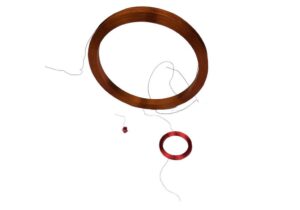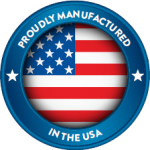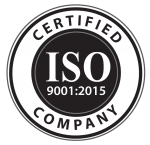Self-supported coils, or air-core coils, are special wire winding configurations that forgo the use of a bobbin or core material. Sometimes referred to as freestanding coils, self-supported coils are exactly what they sound like: wire windings that do not require an internal structural support.
The air-core design offers some unique physical and electromechanical properties. In short, self-supported windings can be more compact for space-limited applications – critical for many of today’s miniature electronics and microcomponents. Also, the lack of a magnetic core lets the winding avoid magnetic saturation limits.
Air-core configurations are thus ideal for applications that require low inductance combined with high frequency magnetic reversal. Below we discuss more advantages of self-supported windings, and some common product applications.
What Are Self-Supported Coil Windings or Air-Core Coils?
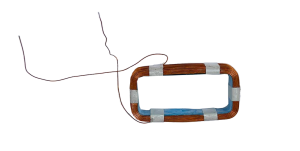 Most typical coil windings use a bobbin or core support on which the wire is wound. Self-supported coils, in contrast, are wound using taped or glued wire windings, or a special bondable magnetic wire. The self-bonding wire brings up yet another name for these unique windings: self-bonding coils.
Most typical coil windings use a bobbin or core support on which the wire is wound. Self-supported coils, in contrast, are wound using taped or glued wire windings, or a special bondable magnetic wire. The self-bonding wire brings up yet another name for these unique windings: self-bonding coils.
Self-bonding magnetic wire eliminates the need for a bobbin or other core support. Coil manufacturers like US Cotronics manufacture self-supported coils by winding a specific wire into a specific design that meets all customer specifications, then heating the product until the bonding agent melts and the wire self-bonds. In other applications, standard types of wire are precisely taped or glued into place to form the self-supported winding.
With self-bonding coils, we are able to wind the coil closer to the metal portion of a circuit than is possible with our bobbin-wound configurations, thus enhancing the magnetic performance for small electronics components.
Advantages of the Self-Supported Coil Configuration:
- Compact Construction – The compact construction of air coils puts the total coil winding closer to the metal of the circuit. This allows for enhanced magnetic performance from the coil, such as for increasing the power of small linear motors or the sensitivity of electronic sensors.
- Design Freedom – Self-supported coils can fit into more electronics components not only because of their compact size, but also their complex or irregular shapes. Unlike bobbin-wound coils, which must follow the size and shape of the core, air coils can be manufactured in virtually any shape required to fit the end product.
- No Metal or Magnetic Core – Air-core coils more naturally exhibit a linear magnetization characteristic. That means the coils tend not to reach magnetic saturation limits compared to their bobbin-wound counterparts.
 Common Product Applications for Self-Supported Coil Windings:
Common Product Applications for Self-Supported Coil Windings:
- High-Frequency Inverters
- Compact Linear Motors
- RFID Applications
- Television and Radio Receivers
- Commercial and Consumer Audio Products
- Frequency Isolation and Suppression Devices
Custom Self-Supported Coil Windings – Manufactured in the U.S.A.
Located in Fairbury, Illinois, US Cotronics is one of America’s premier providers of electromagnetic coil windings for industrial, commercial, and consumer products. We manufacture a wide range of self-supported coil windings in standard as well as custom configurations. All of our quality-engineered air-core coil products are designed to meet each customer’s unique electrical specifications and packaging requirements.
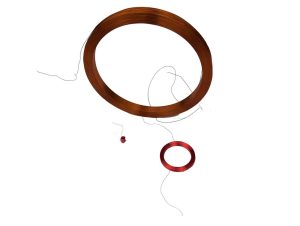 Common Product Applications for Self-Supported Coil Windings:
Common Product Applications for Self-Supported Coil Windings: